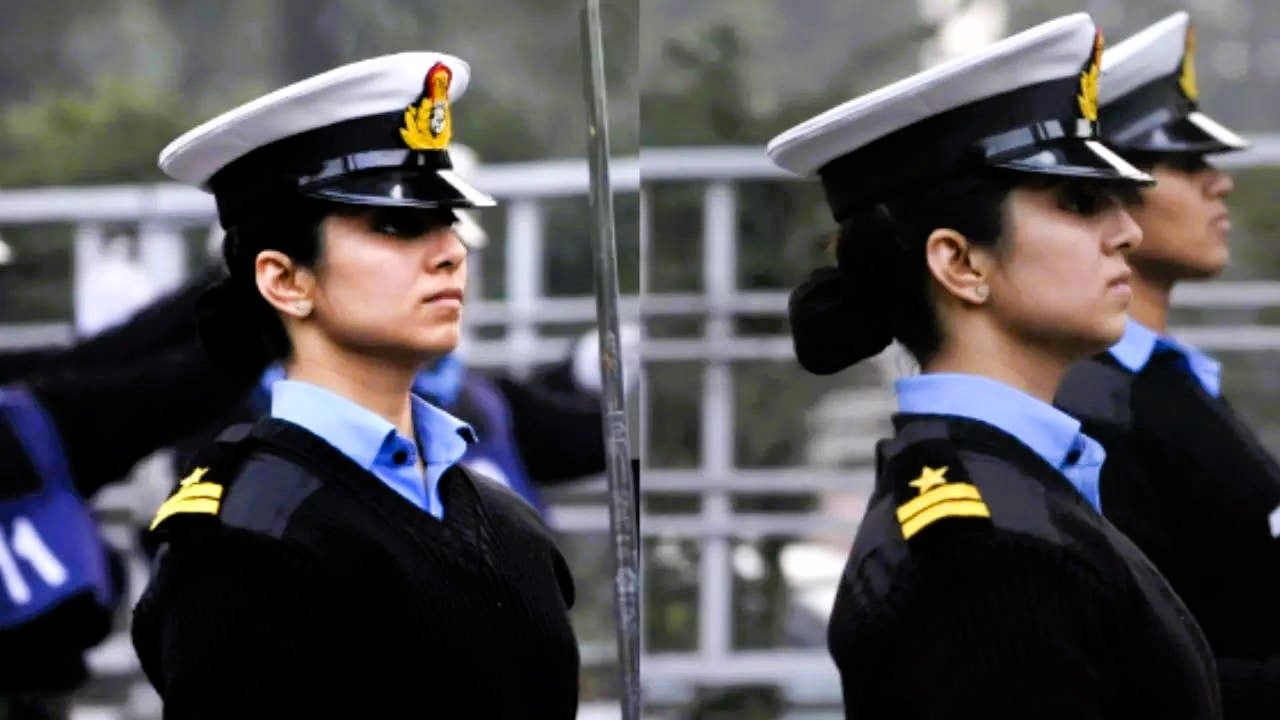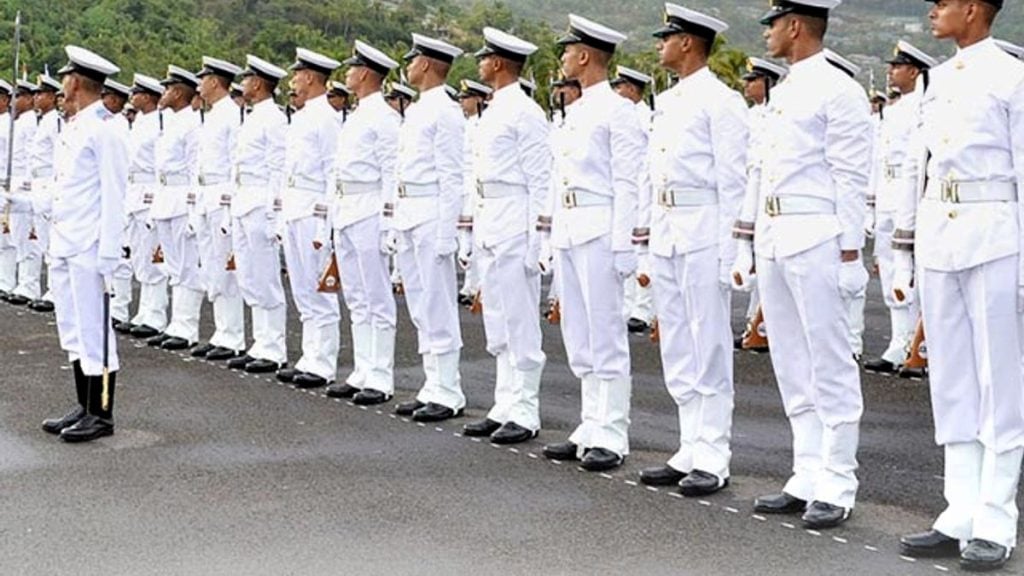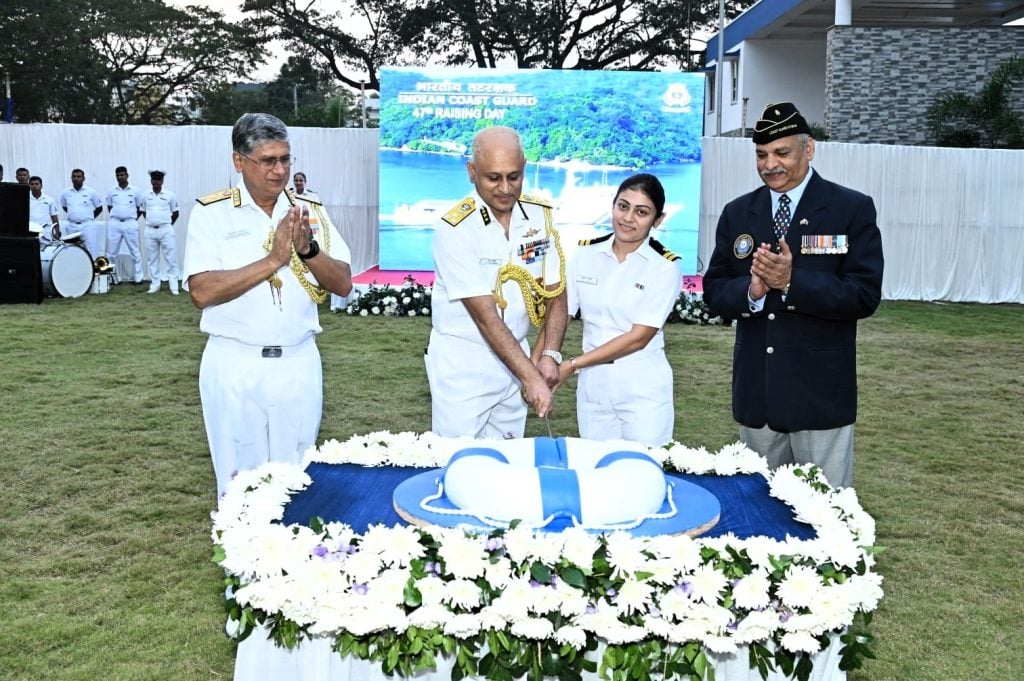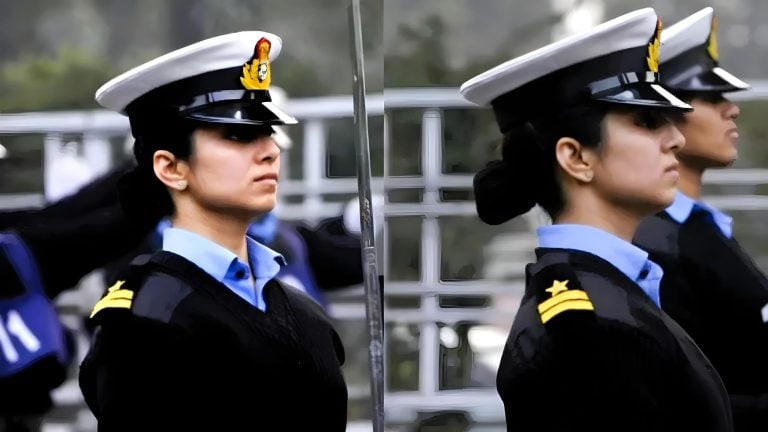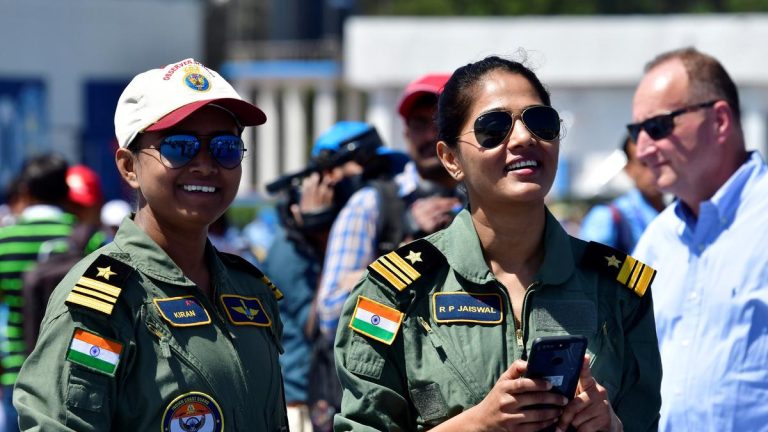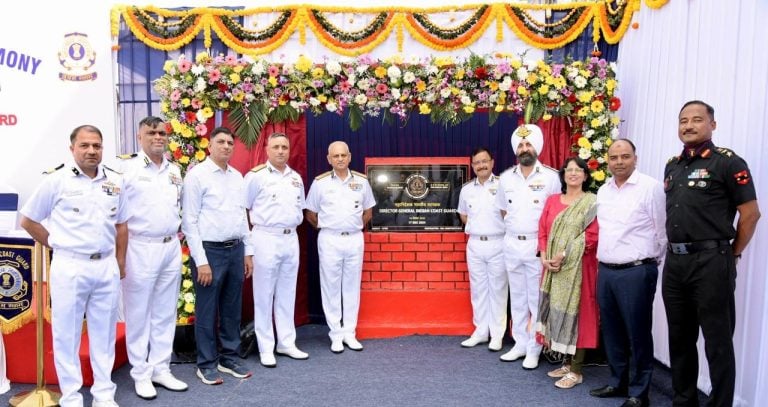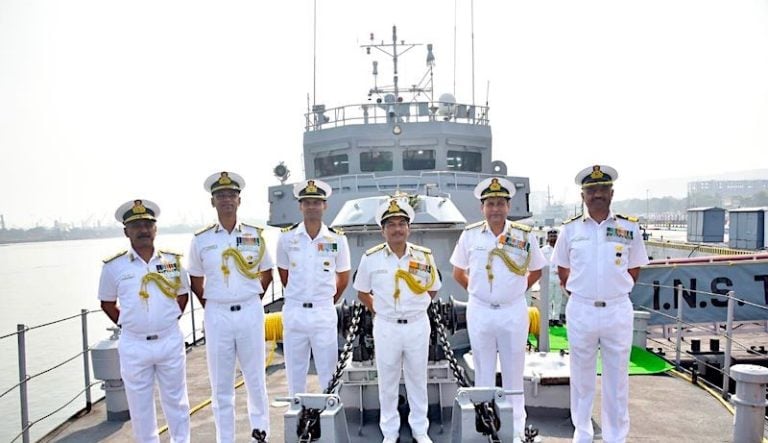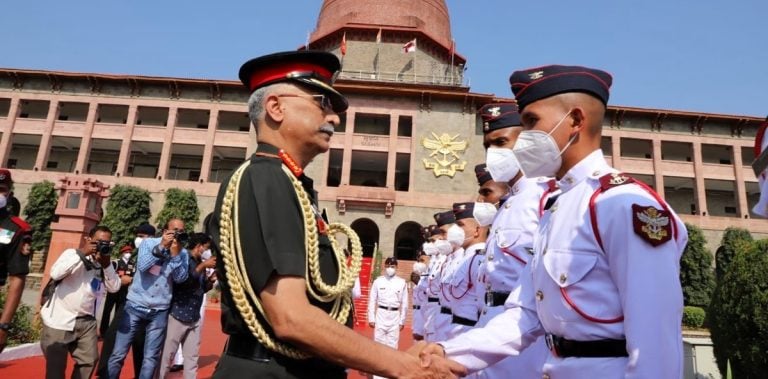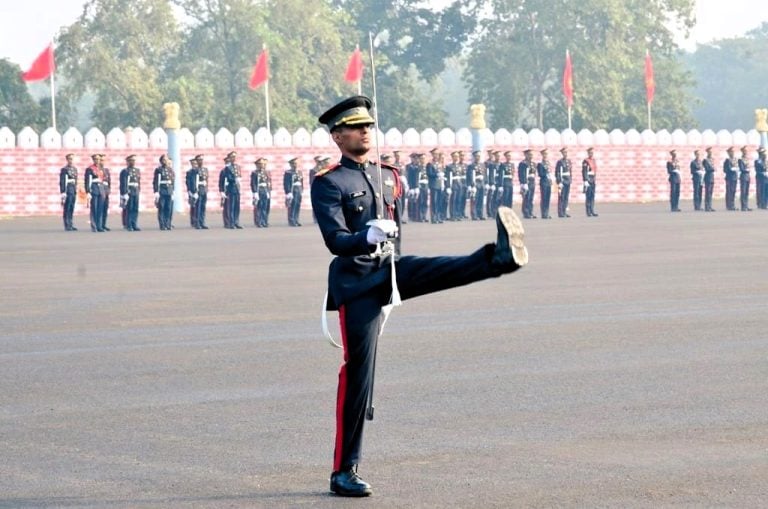Joining the Indian Coast Guard (ICG) is a commendable aspiration for those looking to serve their country while pursuing a career in maritime safety and security. Established in 1978, the ICG plays a crucial role in safeguarding India’s maritime interests, enforcing maritime law, and conducting search and rescue operations.
This comprehensive guide will walk you through the various steps to join Indian Coast Guard, eligibility criteria, and recruitment processes involved in becoming a part of this esteemed organization.
Also Read | Indian Coast Guard Assistant Commandant Recruitment 2025, Apply Online
Overview of the Indian Coast Guard
The Indian Coast Guard is a multi-mission agency operating under the Ministry of Defence. With a workforce of approximately 15,000 personnel and a fleet of around 155 vessels, the ICG is dedicated to ensuring the safety and security of India’s vast maritime domain. Its responsibilities extend to:
- Search and Rescue Operations: Conducting missions to save lives at sea.
- Maritime Law Enforcement: Upholding laws and regulations in Indian waters.
- Pollution Prevention: Protecting the marine environment from pollution.
- Supply Chain Continuity: Ensuring the uninterrupted flow of goods and services via maritime routes.
The ICG offers various career opportunities for individuals passionate about maritime safety and national security.
Recruitment Process
Understanding the recruitment process is essential for candidates aspiring to join the Indian Coast Guard. The ICG conducts national-level defense examinations annually for different positions. Here’s a breakdown of the recruitment process:
Positions Available
The ICG recruits for several positions, including:
- Navik (General Duty)
- Navik (Domestic Branch)
- Yantrik
- Assistant Commandant
Examination Notifications
Candidates interested in joining the ICG should keep an eye on the official website for examination notifications. The application process is entirely online, ensuring a streamlined approach for applicants.
Selection Criteria
The selection process is merit-based, ensuring that all candidates are evaluated fairly. The stages involved in the selection process typically include:
- Written Examination: Candidates must clear a written test relevant to their chosen position.
- Physical Fitness Test: Physical endurance and fitness are assessed.
- Document Verification: Candidates must provide valid documents for verification.
- Medical Examination: A thorough medical examination is conducted to ensure candidates meet health standards.
Exam Overview
To successfully join the Indian Coast Guard, candidates must first pass the ICG recruitment exam. Here’s an overview of the exam structure:
| Particulars | Details |
|---|---|
| Exam Name | Indian Coast Guard Recruitment Exam |
| Organization | Indian Coast Guard (ICG) |
| Exam Level | National |
| Frequency | Annually |
| Posts | Navik (GD), Navik (Domestic Branch), Yantrik, Assistant Commandant |
| Mode of Application | Online |
| Application Fees | SC/ST: Exempted, All Other Candidates: INR 250 |
| Selection Process | Written Examination, Physical Fitness Test, Document Verification, Medical Test |
Eligibility Criteria
Before applying, candidates must ensure they meet the eligibility criteria set by the ICG for various positions. Below is a detailed breakdown of the eligibility requirements:
Assistant Commandant Eligibility
| Post Name | Branch | Age Limit | Educational Qualification |
|---|---|---|---|
| Assistant Commandant (GD) | General Duty (Male) | 21 to 25 years | Bachelor’s Degree in any discipline with Mathematics & Physics up to 12th class |
| Assistant Commandant (GD-SSA) | GD Branch (Female) | 21 to 25 years | Bachelor’s Degree with Mathematics & Physics up to 12th class |
| Assistant Commandant (GD-P/N) | GD Branch (Pilot/Navigator) | 19 to 25 years | Bachelor’s Degree with Mathematics & Physics up to 12th class |
| Assistant Commandant (GD-P-CPL) | GD Branch (Pilot – CPL) | 19 to 25 years | 12th or equivalent with a current Commercial Pilot License |
| Assistant Commandant (Tech) | Technical Branch | 21 to 25 years | Degree in relevant engineering fields |
| Assistant Commandant (Law) | Law Branch | 21 to 30 years | Degree in Law or postgraduate degree in Law |
Yantrik Eligibility
| Post | Age | Educational Qualification |
|---|---|---|
| Yantrik | 18-22 years (5 years relaxation for SC/ST & 3 years for OBC) | Diploma in Mechanical or Electrical or Electronics |
Navik Eligibility
| Post | Age | Educational Qualification |
|---|---|---|
| Navik (General Duty) | 18-22 years (5 years relaxation for SC/ST & 3 years for OBC) | 10+2 with Maths & Physics from a recognized education board |
| Navik (Domestic Branch) | 18-22 years (5 years relaxation for SC/ST & 3 years for OBC) | Matriculation |
Exam Pattern
The ICG conducts separate exams for different positions, each with its own distinct pattern. Below is a detailed overview of the exam patterns for Navik and Yantrik positions:
Navik and Yantrik Exam Pattern
| Post | Written Test Sections | Passing Marks |
|---|---|---|
| Navik (DB) | Section I | 30 (UR/EWS/OBC), 27 (SC/ST) |
| Navik (GD) | Section (I+II) | 30+20=50 (UR/EWS/OBC), 27+17=44 (SC/ST) |
| Yantrik (Electrical) | Section (I+III) | 30+20=50 (UR/EWS/OBC), 27+17=44 (SC/ST) |
| Yantrik (Electronics) | Section (I+IV) | 30+20=50 (UR/EWS/OBC), 27+17=44 (SC/ST) |
| Yantrik (Mechanical) | Section (I+V) | 30+20=50 (UR/EWS/OBC), 27+17=44 (SC/ST) |
Section-wise Marks Distribution
| Section | Marks Distribution | Duration of Exam | Total Questions & Total Marks |
|---|---|---|---|
| I | 45 mins | 60 | |
| II | 30 mins | 50 | |
| III | Electrical Engineering: 50 | 30 mins | 50 |
| IV | Electronics Engineering: 50 | 30 mins | 50 |
| V | Mechanical Engineering: 50 | 30 mins | 50 |
Assistant Commandant Exam Pattern
The Assistant Commandant exam pattern consists of:
- Mental Ability Test: Objective Type
- Aptitude Test: Objective Type
Also Read | Indian Coast Guard Result 2024 Out for CGEPT 01/25
Syllabus Overview
To excel in the ICG recruitment exams, candidates must be well-versed with the syllabus. Here’s a comprehensive overview of the syllabus for Yantrik and Navik positions:
| Section | Marks Distribution | ICG Syllabus |
|---|---|---|
| 1 | Class 10th Syllabus | |
| 2 | Class 12th Maths & Physics Syllabus | |
| 3 | Electrical Engineering: 50 | Diploma Level Electrical Engineering syllabus |
| 4 | Electronics Engineering: 50 | Diploma Level Electronics Engineering syllabus |
| 5 | Mechanical Engineering: 50 | Diploma Level Mechanical Engineering syllabus |
Preparation Tips
Preparing for the Indian Coast Guard exams requires a strategic approach. Here are some effective tips to help you succeed:
Understand the Exam Pattern
Familiarize yourself with the exam structure and types of questions. This will help you manage your time effectively during the actual exam.
Create a Study Schedule
Develop a comprehensive study plan that allocates time for each subject. Ensure that you cover all topics in the syllabus.
Practice Regularly
Regular practice is essential for success. Solve previous years’ question papers and take mock tests to assess your preparation level.
Focus on Physical Fitness
Since physical fitness is a crucial part of the selection process, incorporate regular exercise and fitness routines into your daily schedule.
Stay Updated
Keep yourself informed about any changes in the recruitment process or exam patterns by regularly checking the official ICG website.
Career Prospects in the Indian Coast Guard
A career with the Indian Coast Guard offers numerous opportunities for growth and advancement. Here are some of the key benefits of joining the ICG:
Diverse Career Paths
The ICG provides various career paths, including technical roles, administrative positions, and operational duties. This diversity allows personnel to explore different facets of maritime service.
Training and Development
ICG offers extensive training programs to enhance the skills and knowledge of its personnel. This includes specialized training in navigation, engineering, law enforcement, and environmental protection.
Job Stability and Benefits
Working with the ICG ensures job security, along with numerous benefits such as medical facilities, housing, and retirement plans.
Contribution to National Security
Joining the ICG means playing a vital role in protecting the nation’s maritime interests and contributing to national security.
Also Read | Indian Coast Guard Assistant Commandant Salary and Job Profile 2025
Conclusion
Joining the Indian Coast Guard is not just a career choice; it is a commitment to serve the nation and contribute to the safety and security of its maritime boundaries. By understanding the recruitment process, eligibility criteria, and preparation strategies, aspiring candidates can pave their way to a fulfilling career in this esteemed organization. With dedication, hard work, and the right mindset, you can achieve your dream of becoming a part of the Indian Coast Guard.
FAQs
1. What is the minimum educational qualification required to join the Indian Coast Guard?
Candidates must have at least a 10+2 or equivalent education, depending on the position they are applying for.
2. How often does the Indian Coast Guard conduct recruitment exams?
The ICG conducts recruitment exams annually for various positions.
3. Is there any age relaxation for SC/ST candidates in the recruitment process?
Yes, SC/ST candidates receive age relaxation of up to 5 years, while OBC candidates receive a relaxation of 3 years.
4. What are the physical fitness requirements for joining the Indian Coast Guard?
Candidates must meet specific physical fitness standards, which are assessed during the selection process.
5. How can I stay updated about the recruitment notifications?
Candidates should regularly check the official Indian Coast Guard website for the latest recruitment notifications and updates.
